The evolution of logo designing could be traced back to the Ancient Greece, when the rulers and their dynasties used to use cipher as a monogram in their coins. However, the modern logo designing dates back to the early days of the Renaissance, around the 13th Century. Goldsmiths, masons, paper makers, and potters, were among the first trades people to use marks-pressings into gold, chiseled symbols, watermarks on paper, and simple thumb-prints on pottery.
Today there are many corporations, products, brands, services, agencies and other entities using an ideogram (sign, icon) or an emblem (symbol) or a combination of sign and emblem as a logo. However, only a few of the thousands of ideograms people see are recognized without a name.
Let’s look at the history and evolution of the well known logo designs. If you are a logo designer, I bet you will learn a lot from their mistakes, and a long path of improvements until they’ve reached the final design. If you are just an ordinary mortal – don’t worry, this will be at least very entertaining for you.
P.S.: I’ll try to keep this logo evolution post up-to-date as much as possible. So, if you see anything missing here on Bored Panda’s logo evolutions list, please let me know!
Pepsi Logo Evolution
(via boredpanda)
Manufactured and marketed by PepsiCo, it was first developed and produced in the early 1890’s by Caleb Bradham, a pharmacist in New Bern, North Carolina labeled as “Brad’s drink”. In 1898, Bradham renamed his drink into “Pepsi-Cola”.
In 1898, Bradham used a scribbled logo script as the first Pepsi logo to brand the product. When his business got established and people started enjoying his drink, Bradham decided to modify the Pepsi logo into a more customized version of the previous logo script. Thus, in 1905, a modified script logo was introduced, followed by a second change in Pepsi logo in 1906 with the inclusion of the slogan, “The Original Pure Food Drink”, in it.
By 1943, the Pepsi logo adopted a “bottle cap” look that included the slogan, “Bigger Drink, Better Taste”. Later, in 1962, the Pepsi logo was replaced with two bulls-eye marks encircling “Pepsi”, and then again in 1973, into a boxed Pepsi logo with minor typeface changes.
In 1991, Pepsi commemorated the evolution of its scripted Pepsi logo by featuring a logo design with an italic capital typeface. Later at the company’s 100 years celebration in 1998, Pepsi-Cola unveiled a new logo that symbolized the brand’s innovation and global recognition. (Read more: here and this pdf)
RESPONSE TO THE NEW PEPSI LOGO
(bamboo for blowatlife.blogspot.com via boredpanda)
Coca-Cola Logo Evolution
(via boredpanda)
Coca-Cola was first served in 1886 and even then, the first official logo of Coca-Cola was not the script logo. It first appeared in the Atlanta Journal Constitution in 1886 as both a slab serif and chunky sans serif – it wasn’t until mid-1887 that Frank Robinson, Coca-Cola’s bookkeeper, drew the first traces of the Spencerian script logo that we all know.
For the first ten to twenty years you could probably find a dozen different executions of the Coca-Cola script as the logo was probably drawn over and over for different applications. It isn’t until the 1930s and 1940s that a clear interpretation of the logo appears and is used consistently. During the late 1950s and early 1960s the script logo is placed within a shape, referred to as the “fishtail” logo, which is as off-brand as anything that Coca-Cola has ever done.
In 1960′s the wave was introduced, a ubiquitous visual today, when Lippincott Mercer was in charge of making the Coca-Cola identity more consistent.
“New Coke” introduced in 1985 had a new formula marketing and its own set of logos – that completely ignored the script logo – that left a bad taste in their consumers’ mouths. Around the same time, in 1986, Landor began rolling out an even more developed brand identity that modified the wave among other subtle changes.
Today’s Coca-Cola logo is amazingly similar to what it was 124 years ago. (Read more: here)
Apple Logo Evolution
(via boredpanda)
The original logo was designed by Ron Wayne, who started Apple with Jobs and Woz in 1976. In 1977 White sold his portion of Apple back to Jobs and Woz when they incorporated. The image is a pen and ink illustration of Sir Issac Newton leaning against an apple tree with a portion of a William Wordsworth poem running around the border: “Newton…A mind forever voyaging through strange seas of thought…alone” (Prelude, Book III, Residence at Cambridge)
Steve Jobs decided to scrap this image because he felt that Wayne’s logo was too cerebral and not easily reproduced at small sizes. In 1977, with Wayne gone from the company, Jobs turned to the Regis McKenna Advertising Agency to produce a new, more iconic logo. After several attempts and variations (and a ton of money spent), the result was the most iconic of all Apple logos. The Rainbow Apple logo.
When Jobs returned to Apple in 1997, the company was bleeding money, and Jobs and Co. realized that the Apple logo could be leveraged to their advantage. Placing a large rainbow Apple logo on top of the original Bondi Blue iMac, for example, would have looked silly, childish, and out of place. Not exactly the direction Jobs wanted to lead Apple in. So instead of placing a somewhat minuscule rainbow colored Apple logo on its products, Apple began placing sizeable and Monochrome styled logos on its products. (Read more: here and here)
Nike Logo Evolution
(via boredpanda)
The Swoosh logo was designed by Carolyn Davidson in 1971 – “ a graphic design student that Phill Knight met while teaching an accounting class at Portland State University to supplement his then-fledgling business. He paid a grand total of $35! Phill never liked the logo but stuck onto it quoting “I don’t love it, but it’ll grow on me”. 12 years later in 1983, Davidson got an invitation to lunch by Nike where Knight surprised her with a gold Swoosh ring embedded with diamond and an envelope containing Nike stock.
Shell Logo Evolution
(via boredpanda)
Since first appearing in the early 1900s, the Shell logo has moved from a realistic rendering of a pecten, or scallop shell, to today’s bold shape with distinctive colors.
Both the word “Shell” and the Pecten symbol may have been suggested to Marcus Samuel and Company (original founders) by another interested party. A certain Mr Graham (of apparent Scottish origins) imported Samuel’s kerosene into India and sold it as “Graham’s Oil”. He became a director of The “Shell” Transport and Trading Company, and there is some evidence that the Shell emblem was taken from his family coat of arms.
It was around 1915 when the rendering allowed for easier reproduction, shown in the 1930s symbol above.
Colour first appeared with the construction of Shell’s first service stations in California. Not only did Red and yellow help Shell stand out, but they’re also the colors of Spain, where many early Californian settlers were born. Perhaps by displaying Spanish colors it was hoped an emotional bond would be created.
From the 1950s onwards, the icon became more and more simplified, improving recognition and memorability. The 1971 logo, which is still used today, was designed by the French-born Raymond Loewy, who also created logos for BP and Exxon. (Read more: here)
IBM Logo Evolution
(via boredpanda)
The company which became IBM was founded in 1896 as the Tabulating Machine Company by Herman Hollerith, in Broome County, New York (Endicott, New York, where it still maintains very limited operations). It was incorporated as Computing Tabulating Recording Corporation (CTR) on June 16, 1911, and was listed on the New York Stock Exchange in 1916.
IBM adopted its current name in 1924, when it became an international manufacturing company. The logo that was used from 1924 to 1946. The logo is in a form intended to suggest a globe, girdled by the word “International”.
The logo that was used from 1947 to 1956. The familiar “globe” was replaced with the simple letters “IBM” in a typeface called “Beton Bold.”
The logo that was used from 1956 to 1972. The letters “IBM” took on a more solid, grounded and balanced appearance.
In 1972, the horizontal stripes now replaced the solid letters to suggest “speed and dynamism.” This logo (in two versions, 8-bar and 13-bar), as well as the previous one, was designed by graphic designer Paul Rand. (Read more: here)
Canon Logo Evolution

(via boredpanda)
The origin of today’s world famous brand Canon can be traced in Precision Optical Instruments Laboratory that was established back in 1933. The first set of cameras was manufactured as a part of business trial and these early birds were named Kwanon after the Buddhist Goddess of Mercy. Now this Goddess was the possessor of thousand arms and spat flames.
From the very beginning, the company worked with an ambition of reaching out to the outer world and as such the company wanted to adopt a name that will be acceptable globally. With this intention, the company name was changed from Kwanon to Canon and it was registered as the logo trademark name of the company in the year 1935. (Read more: here)
Nokia Logo Evolution
(via boredpanda)
In 1865, Engineer Fredrik Idestam established a wood pulp mill on the banks of the TammerKoski rapids in the town of Tampere, in southern Finland. Later in 1868, he built second mill by the Nokianvirta River, which gave the Nokia its name. In 1871, Idestam and his friend Leo Mechelin, renamed and transformed the firm into a share company, thereby founding the Nokia Company.
The first logo of Nokia was created in 1966 showing the image of a fish. This image should be inspired by the salmon fish of Nokianvirta River.
In 1898, Eduard Polon founded the Finnish Rubber Works, which later became Nokia’s rubber business. The new company tried producing many products like papers, bicycle, car tires, footwear, communication cables, electricity generation machineries, televisions, aluminum, capacitors, and lot more.
In 1967, three companies, which were jointly owned since 1922 by Nokia, officially merged and created Nokia Corporation. After the merger, Nokia Corporation adopted the logo which was all black rounded shape emblem, in which “Nokia” was written in white.
At the start of its telecommunication equipment manufacturing, Nokia adopted the logo which was quite similar to the current one, but with the light blue color and the arrow like shape pointing upward. Arrow in the logo represents the Nokia’s progress and advancement in telecommunication industry. (Read more: here)
Starbucks Logo Evolution
(via boredpanda)
Il Giornarle was the espresso cafe Howard Schultz opened up in 1986 after failing to convince the original owners of Starbucks to focus on serving espresso beverages. By 1987, the two remaining original owners of Starbucks decided to sell the business and Howard jumped at the chance to buy Starbucks and remake it into the espresso bar concept he had just begun at Il Giornale.
“To symbolize the melding of the two companies [Il Giornarle and Starbucks] and two cultures, Terry [Heckler] came up with a design that merged the two logos. We kept the Starbucks siren with her starred crown, but made her more contemporary. We dropped the tradition-bound brown, and changed the logo’s color to Il Giornarle’s more affirming green.” (Read more:here)
FedEx Logo Evolution
(via boredpanda)
An interesting case is the refinement of the FedEx logo, where the brand consultants convinced the company to shorten their corporate name and logo from “Federal Express” to the popular abbreviation “Fed Ex”. Besides creating a shorter brand name, they reduced the amount of color used on vehicles (planes, trucks) and saved hundreds of thousands of dollars in paint costs. Also, the right-pointing arrow in the new logo is a subliminal hint of motion.
Playboy Logo Evolution
(via boredpanda)
Art Paul was working as a freelance designer when he in 1953 was contacted by playboy founder Hugh Hefner who needed a logo for his new magazine. He created the now famous rabbit wearing a tuxedo bow tie. Paul went on to design the whole first edition of the magazine and was hired by Hefner as Playboy’s first art director in 1954, a position he held for 30 years.
Playboy magazine claims it once received a letter at its Chicago, Illinois offices with its distinctive “bunny” logo as the only identifying mark, appearing where the mailing address normally appears.
Walmart Logo Evolution
(via boredpanda)
Google Logo Evolution
(via boredpanda)
Microsoft Logo Evolution
(via boredpanda)
Volkswagen Logo Evolution
(via boredpanda)
Firefox Logo Evolution
(via boredpanda)
Adobe Logo Evolution
(via boredpanda)
Audi Logo Evolution
(via boredpanda)
BMW Logo Evolution
(via boredpanda)

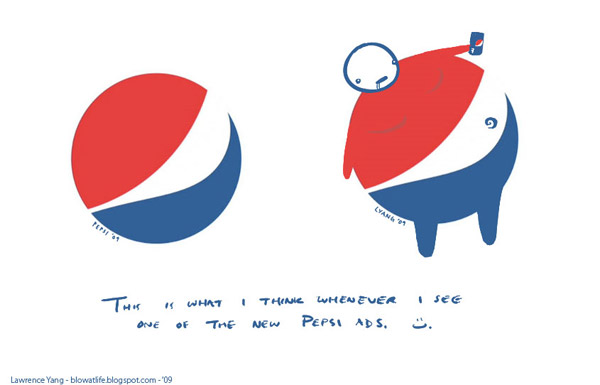
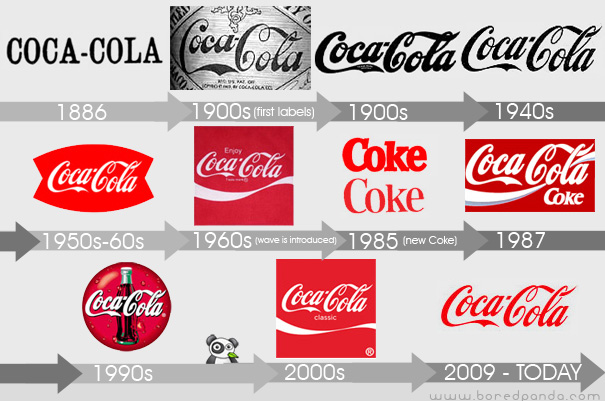


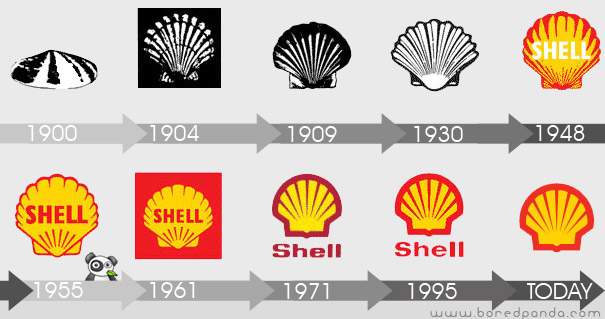



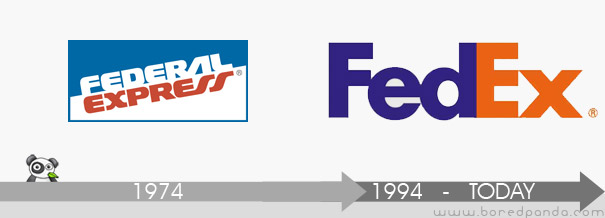
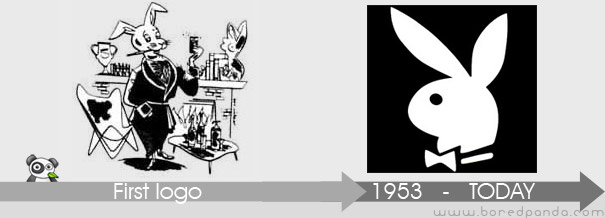
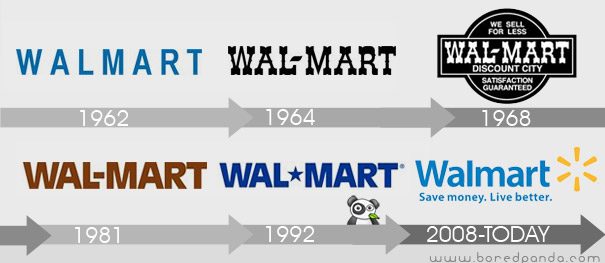





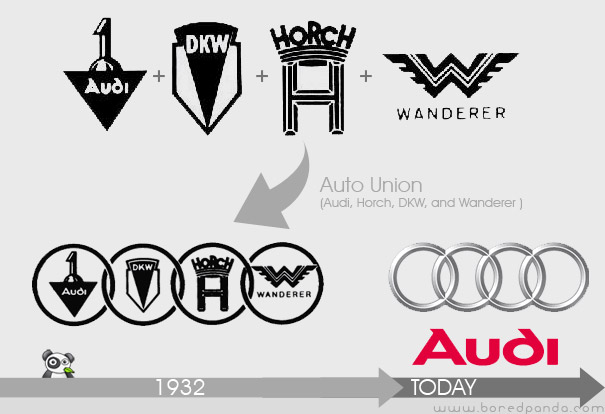
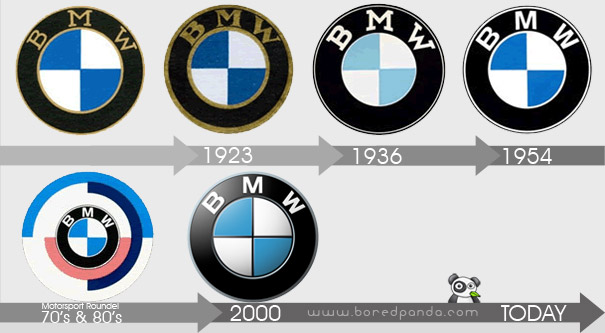





No comments:
Post a Comment